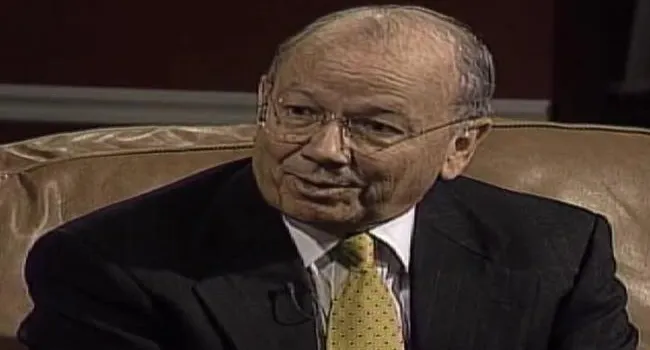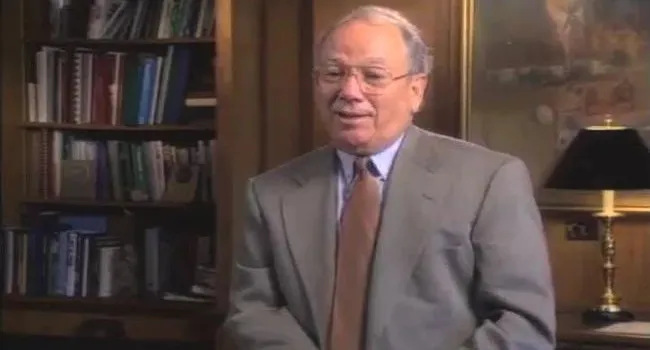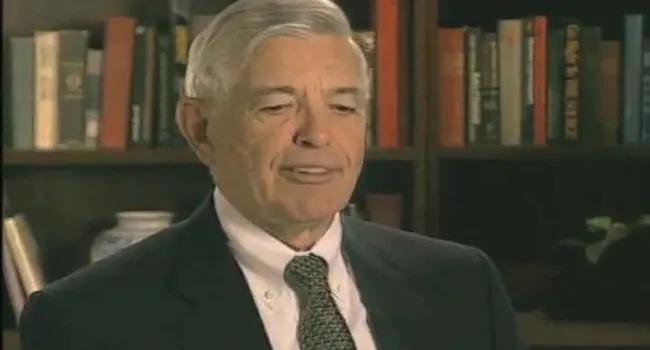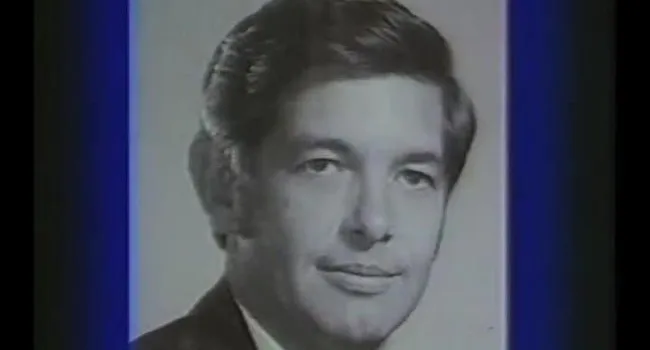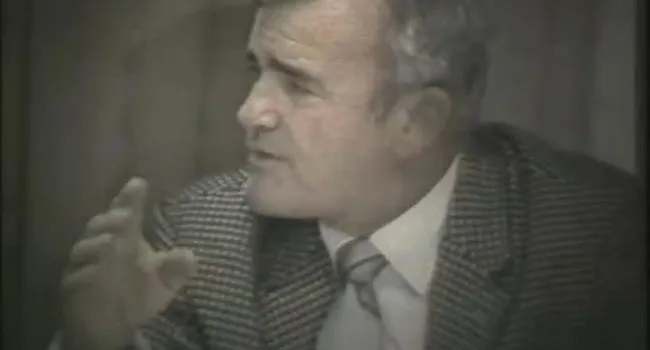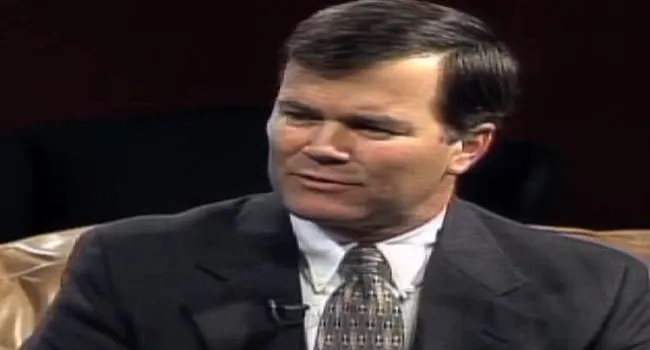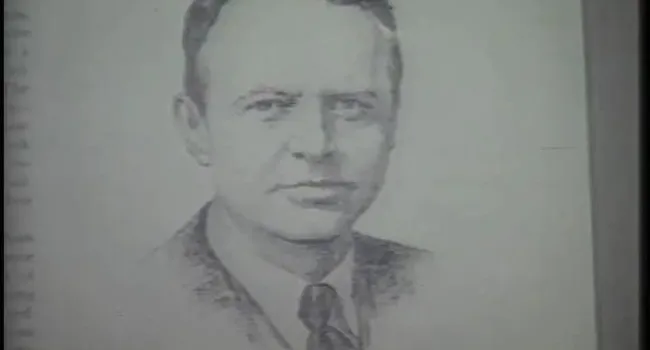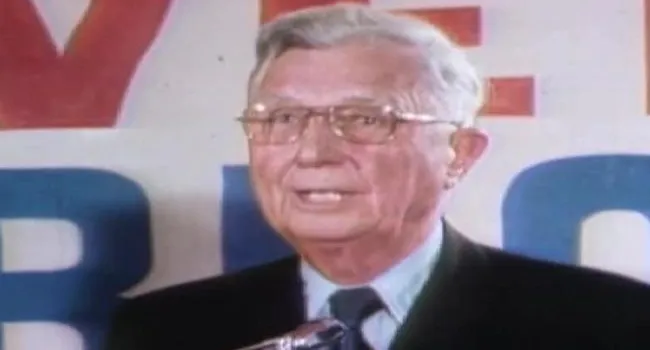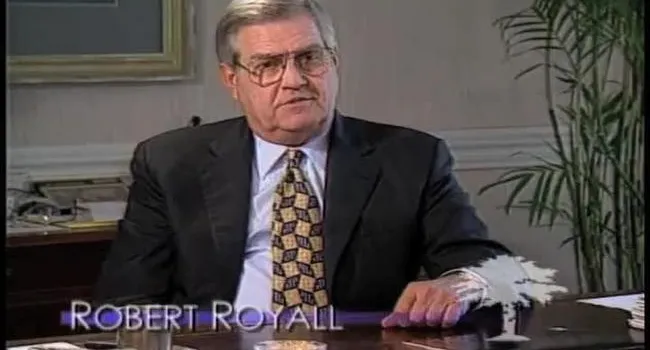A profile of W. W. "Hootie" Johnson.
W. W. "Hootie" Johnson
(Born February 16, 1931)
On the desk of Hootie Johnson, there is a small plaque, given to him years ago. It is an eloquent statement of Theodore Roosevelt, which says, in part:
It is not the critic who counts . . . who points out how the strong man stumbled. The credit belongs to the man who is actually in the arena, whose face is marred by dust and sweat and blood; who strives valiantly; who errs and comes short again and again . . . who, at the best, knows in the end the triumphs of high achievement, and who at the worst, if he fails . . . his place will never be with those timid souls who know neither victory nor defeat.
It is easy to understand Johnson's fondness for the plaque. It very nearly describes his personal and professional essence. There have been for him many victories that seemed effortless. But most triumphs were hard-won and difficult, and few people save those closest to him understand that the ascent of Johnson's bank was hammered out of formidable handicaps.
W. W. "Hootie" Johnson was born February 16, 1931, in North Augusta, the son of Dewey H. and Mabel Woodward Johnson. His family moved to Greenwood in 1943 when his father, an executive with Citizens & Southern National Bank, became president of the Bank of Greenwood. At the time, the bank had assets of $5 million.
Hootie Johnson made his career choice early. "I knew what I wanted to do in high school," he once said in an interview. "I wanted to finish college and go back to Greenwood and help my father build a bank."
He worked part-time at the Bank of Greenwood while attending Greenwood High School and during his four years at the University of South Carolina, which he attended on a football scholarship.
The Bank of Greenwood evolved into the State Bank and Trust Company, with headquarters in Columbia, and in 1969 was renamed Bankers Trust of South Carolina. In 1974, the bank moved from 1244 Main Street to the corner of Gervais and Sumter streets and into the 20-story Bankers Trust Tower, at the time Columbia's tallest building.
In 1965, at the age of 35, Johnson had assumed control of the bank, and under his leadership, Bankers Trust of South Carolina rose from obscurity to become a high- performance bank, respected widely in the financial universe. Johnson's associates insist that the bank's growth did not occur by happenstance. Rather, it was the product of planning and odds-fighting. In the 21 years before the Bankers Trust merger with NCNB in 1986, there was never a time when the bank was not undergoing significant change.
In most cases, change was substantial, uphill work. When Johnson sought to effect South Carolina's largest bank merger, he was delayed for two years by bureaucratic legal battles. Had he not fought back, the merger would not have come about. When negotiations appeared hopeless on another important acquisition, his creative plan of shareholder compensation broke the deadlock. And, when his mortgage banking subsidiary bought a much larger firm, the newspapers likened the transaction to Jonah swallowing the whale.
He was always an action-oriented leader who did not encourage lengthy memoranda and permanent committees. He insisted on simplicity and clarity. He has unique ways of communicating informally.
John G. P. Boatwright, retired president of NCNB South Carolina, once wrote of Johnson, "So many of us tend to seek solutions as torchbearers righteously proclaiming the logic of our position with trumpets and cymbals. But Hootie knows how to sow the seeds of his position among those who could make it grow. Hootie confides in people, and in doing so, his confidants feel good about themselves and buy into the plan he proposes." Johnson's financial and communicative skills reached well beyond his profession. He was a member of the South Carolina House of Representatives during 1957 and 1958. Later, he was co-chairman of a committee to develop a plan for desegregation of South Carolina colleges and universities. He served on the Columbia Community Relations Council and was a board member of the Columbia Urban League and the National Urban League. He also was a trustee of Benedict College.
He was chairman of the South Carolina State Ports Authority for 13 years, served as chairman of the South Carolina Research Authority, and was a trustee of the University of South Carolina Business Partnership Foundation.
Since May 1998, he has been chairman of Augusta National Golf Club.
In 1971, he was presented the Algernon Sydney Sullivan award for distinguished service by the University of South Carolina, and in 1981, USC presented him its Distinguished Alumnus Award. Since then, he has been awarded honorary doctoral degrees by Lander College, the University of South Carolina, and the Medical University of South Carolina. In 1975, B'nai B'rith presented its Outstanding Citizen Award to Johnson, who, besides Bernard Baruch, is the only South Carolinian ever to receive national B'nai B'rith recognition.
Today, Johnson is chairman of the executive committee of Bank of America Corporation. He is a director of Bank of America Corporation, Duke Power Company, Liberty Corporation, and ALLTEL Corporation.
On July 26, 1951, he married Pierrine Baker of Greenwood, and they are the parents of four daughters.
Hootie Johnson was inducted into the South Carolina Business Hall of Fame in 1987.
© 1999 South Carolina Business Hall of Fame







